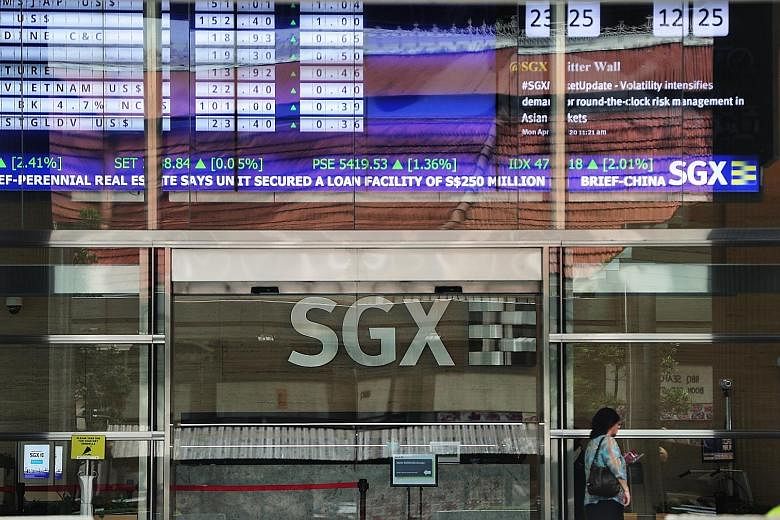The pandemic has created massive economic uncertainty, but people continue to invest and seek advice for managing their wealth.
Wealth management experts say the key strategy is to have a diversified portfolio during the crisis, while exploring industries like technology that might do better after the outbreak.
Mr August Hatecke, UBS co-head for wealth management for the Asia-Pacific, says: "Now more than ever, clients need a trusted wealth management partner. We just experienced a fast and furious sell-off in markets, followed by one of the quickest rebounds ever in history. Our clients need our advice to understand how to navigate these markets. Are portfolios resilient enough to withstand a second wave? Our job as advisers is to help our clients protect their assets and to capture opportunities in the markets."
A UBS report out at the end of last month showed that 47 per cent of wealthy investors still expect to keep their stock portfolios at the same level in the next six months, while 37 per cent plan to invest even more.
Furthermore, 23 per cent of them believe now is a good time to buy stocks, with 61 per cent seeing a buying opportunity if shares fall by another 5 per cent to 20 per cent.
The survey polled 4,108 wealthy investors and business owners across 14 markets last month.
Asian investors also came out tops in terms of market optimism, with 51 per cent of them bullish on the six-month outlook for stocks in their region.
Mr Anurag Mathur, HSBC Bank Singapore's head of retail banking and wealth management, adds that although investors remain cautious, the bank has seen more investment activity on its online platform, including an increase in self-directed investments into equities, unit trusts and foreign exchange since January.
Mr Robin Heng, Bank of Singapore global market head for Philippines, Australia, Indonesia, Thailand and Indochina, says: "The investors look to us to help them with the planning and management of the transition of their family wealth - an area that they should start the conversation early and not delay.
"For the wealthier families in the region, we continue to see sustained interest in setting up their family offices in Singapore."
Ms Audrey Goh, senior cross-asset strategist at Standard Chartered Private Bank, says that many people are worried about what the pandemic means for them financially.
"In addition to potential health and employment uncertainties, the outbreak has brought about elevated uncertainties in the financial markets, thus resulting in unprecedented volatility and big swings in asset prices earlier this year."
Wealth managers say investors should avoid timing the market, but continue to have a diversified portfolio to manage risks.
Mr Hatecke notes: "In such volatile markets, diversification and strategic asset allocation is key. Our clients not only wish to protect their assets, but also to capture opportunities."
He adds that growth is expected to rebound for Asian economies in the second half of the year.
"We believe that Asia, excluding Japan, could be the only major equity market where earnings do not fall in 2020. Asia investment-grade credit is attractive."
Mr Heng says that this uncertain environment calls for careful capital management and a long-term mindset. Investors who are leveraged should make use of rallies to lower their risk and build up liquidity buffers. They should also avoid timing the market, but trade up in quality securities and edge into solid assets that are oversold in terms of fundamental valuations.
"Many companies will be permanently impaired, and some will not survive. It is critical to focus on high-quality assets with resilient balance sheets and growth," he says.
Mr Heng adds that global family offices are looking at segments of the technology sector that can benefit from the new normal after Covid-19.
Ms Goh recommends a prudent averaging strategy, meaning the investor spreads out investments over regular intervals instead of putting all the money to work at one time.
Investors can also include exposure to balanced risk assets, such as multi-asset income global equities, and a safe haven like government bonds or cash in their asset allocation.
"Instead of trying to time the market, having a systematic approach to investing may be more useful to ensure one does not miss out on potential opportunities," she says.












